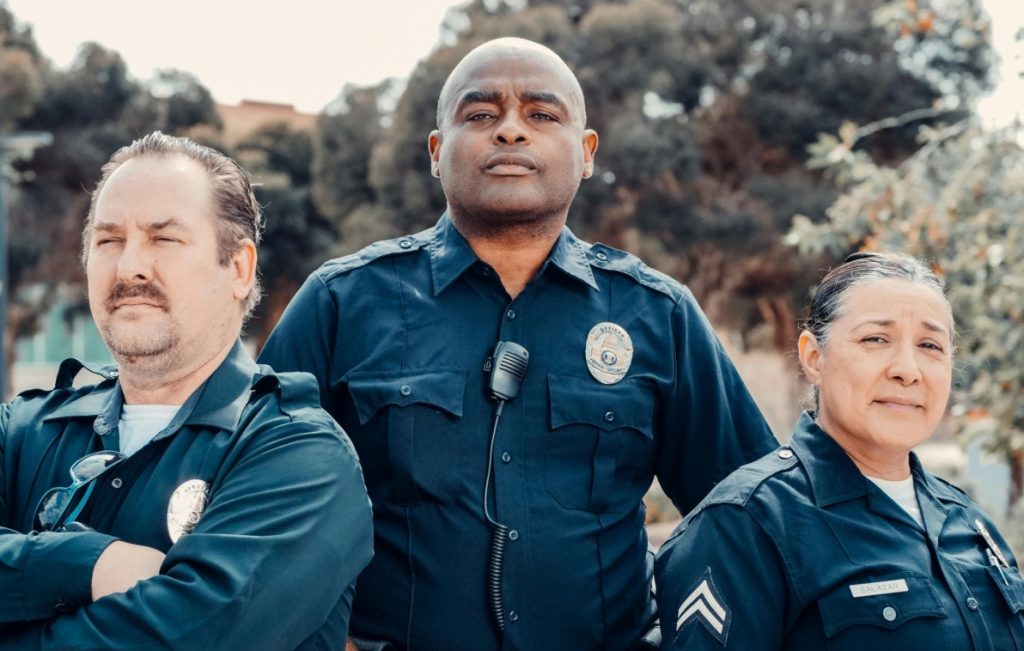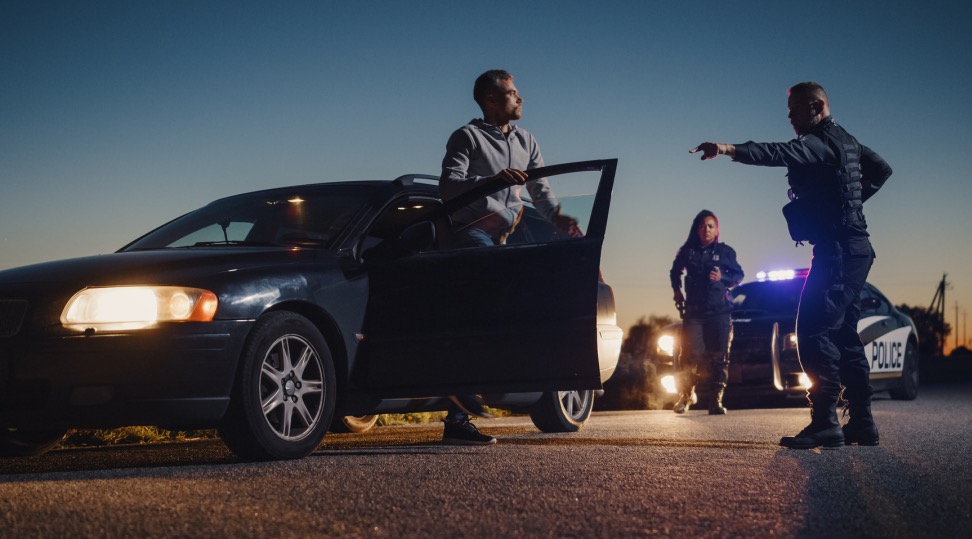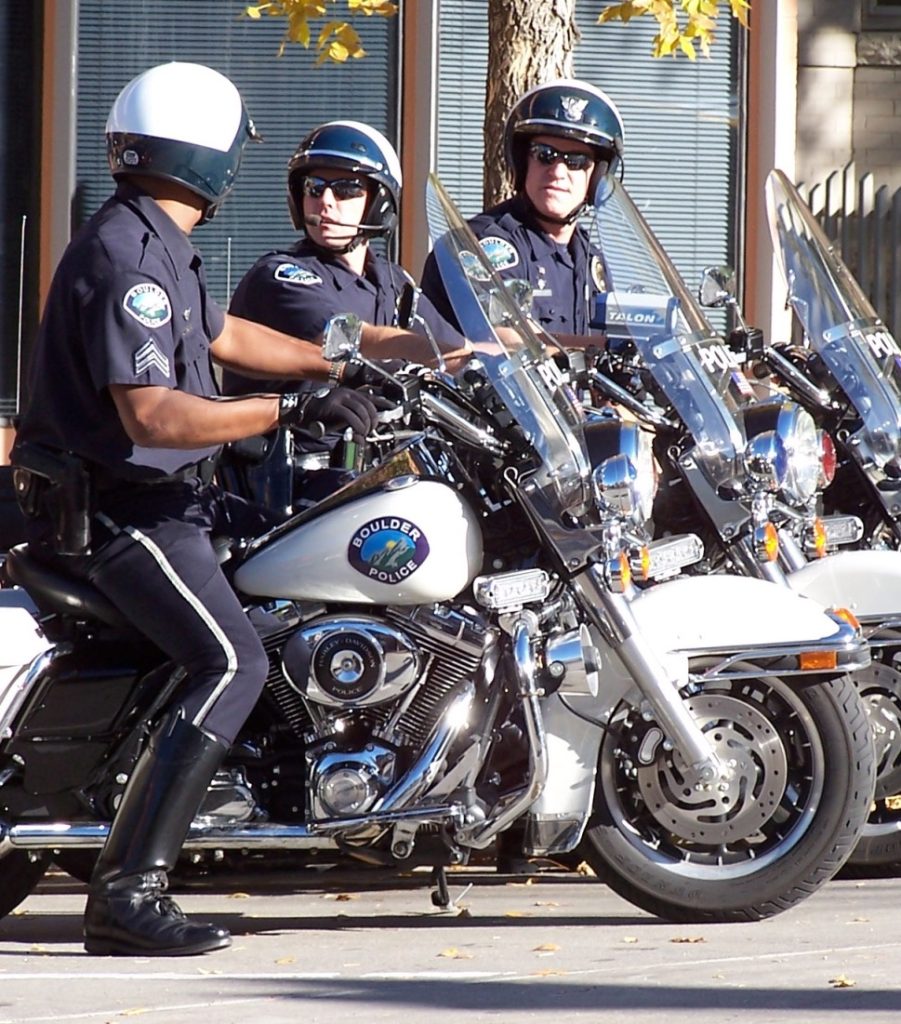Justice You Deserve
What Police Don’t Tell You About Their Tactics and Your Rights During a Traffic Stop

By Kevin R. Collins, Esq.
April 2025
Few situations create as much anxiety as seeing flashing lights in your rear-view mirror. While traffic stops are routine for law enforcement, most drivers experience them rarely and often do not fully understand their legal rights during these encounters. This gap in knowledge can lead to unnecessary complications or even rights’ violations. This article outlines several factors about traffic stops which many drivers have never known because police officers do not discuss them publicly.
When Officers Can Pull You Over
Police officers need “reasonable suspicion” to initiate a traffic stop. This is a legal standard lower than “probable cause” but still requiring specific, articulable facts suggesting a violation. Common legitimate reasons include:
- Observed traffic violations (speeding, running a stop sign)
- Vehicle equipment issues (broken taillight, expired registration)
- Matching a suspect or vehicle description
- Erratic driving patterns suggesting impairment

What police will not readily tell you is that they cannot legally stop you based solely on hunches, your race or ethnicity, or to conduct fishing expeditions without reasonable suspicion.
The “Patience Test”
How quickly you pull over is often interpreted as an indicator of guilt or cooperation. Officers notice:
- Excessive delay in pulling over (which might suggest you are hiding something or preparing a story)
- Where you choose to stop (selecting a well-lit, public area is reasonable for safety, but driving past multiple safe stopping points may raise suspicion)
- Movement inside the vehicle before coming to a complete stop
There Is More Technology Used by Police Than Most People Know
Many patrol cars now have:
- Automated license plate readers which scan hundreds of plates per hour
- Multiple camera systems recording the interaction from different angles
- Audio recording devices which may capture conversations even when you are not near the patrol car
Your Body Language Matters
Officers are trained to read non-verbal cues such as:
- Excessive nervousness beyond what is typical for a routine stop
- Avoiding eye contact or staring too intensely
- Fidgeting, particularly reaching for areas out of the officer’s view

The “Free Look”
Police use traffic stops as opportunities for what is called a “plain view search”. Once officers stop you for a legitimate reason, they are entitled to look around and inside your vehicle for signs of a crime. Officers can and will:
- Shine their flashlight around your vehicle looking for anything suspicious
- Position themselves strategically to see as much of your vehicle’s interior as possible
- Ask questions intended to keep you distracted while they observe
The Strategy Behind Casual Questions
When officers ask, “Where are you headed?” or “Where are you coming from?”, these are not just friendly conversations. Officers are trained to use conversation techniques that:
- Keep you talking to reveal potentially incriminating information
- Help them establish a rapport to gain compliance
- Buy time for backup if needed
These questions establish timeline and travel patterns that might reveal inconsistencies. Your answers to their casual questions may provide reasonable suspicion to extend the stop. Officers compare your statements with physical evidence (like luggage visible in your car) and may be building an argument to search further without your knowing it.
Documentation of Facts Beyond the Ticket
What many drivers do not realize is that officers document all sorts of evidence about their encounter with you not just what led to the stop or a ticket. Officers will note:
- Your demeanor and cooperation level
- Statements you make, even casual ones
- Observations about your vehicle’s condition
- Presence of passengers and their behavior

Officers Have Discretion Whether to Ticket or Not
Officers have significant discretion in traffic enforcement. Factors that might influence their decision to issue a citation versus a warning include:
- How you interact with them (respectful versus confrontational)
- Whether you acknowledge the violation
- Your driving history
- Local enforcement priorities
- How truthful you appear to be about the circumstances
Officers Will Not Tell You What Your Rights Are
When you’re pulled over by law enforcement, you maintain several fundamental rights. These include:
The right to remain silent: While you must provide your license, registration, and insurance when requested, the Fifth Amendment protects your right to remain silent beyond these basic identifiers. You are not legally obligated to answer questions:
- About where you’re coming from or going to
- About whether you’ve been drinking alcohol
- About your immigration status
- Designed to elicit incriminating responses
A simple, polite statement like “I am exercising my right to remain silent” is legally sufficient. Remember that anything you say can be used against you later, even seemingly innocent statements.

The right to refuse searches: One of the most misunderstood aspects of traffic stops involves vehicle searches. Without your consent, police generally need one of the following to search your vehicle:
- A valid search warrant
- Probable cause (visible evidence of contraband or criminal activity)
- Reasonable belief that searching is necessary for the safety of the officer
- A lawful arrest
- Impoundment or towing of the vehicle
What officers rarely volunteer is that you have the right clearly and calmly to refuse consent to search. A simple “Officer, I do not consent to searches” is sufficient. Refusing consent cannot be held against you legally, though it may extend the duration of the stop if the officer then seeks a warrant.
The right to record the interaction: In all 50 states, you have the right to record your interaction with police during a traffic stop provided you:
- Do not interfere with the officers performing their duties
- Remain in the vehicle unless instructed otherwise
- Announce that you are recording if state law requires it
Many officers will not mention this right, and some may even incorrectly state that recording is prohibited.

The right to leave when the stop is complete: A traffic stop should last no longer than necessary to address the reason for the stop. Courts have ruled that prolonged detentions without reasonable suspicion of other crimes violate Fourth Amendment protections.
What police rarely tell you is that once the officer has returned your documents and either issued a citation or a warning, you can politely ask, “Officer, am I free to go now?” If the answer is yes, you may leave. If the answer is no, you may ask what further reasonable suspicion is keeping you detained.
Practical Tips for Protecting Your Rights During a Traffic Stop
- Pull over safely as soon as it is reasonable to do so
- Stay in your vehicle unless otherwise directed
- Keep your hands visible preferably on the steering wheel until instructed otherwise
- Be polite and cooperative with providing required documentation
- Avoid sudden movements that might be misinterpreted
- Do not physically resist even if you believe your rights are being violated
- Document everything as soon as possible after the encounter
Final Thoughts
Understanding your rights does not require that you act confrontational with police; in fact, it is preferred that you remain calm and polite but firm. The most successful traffic stop is one that ends safely for everyone involved. Knowing your legal rights prevents potential violations, protects you from unnecessary investigation, and ensures fair treatment under the law.
If you believe your rights were violated during a traffic stop, you should consult with an attorney immediately about your specific situation.

Attorney Kevin R. Collins has represented hundreds and hundreds of individuals who have been stopped by police. Attorney Collins has filed countless motions to dismiss and to suppress based on inappropriate police conduct. If you have concerns about your traffic stop, please contact Attorney Kevin R. Collins today.











